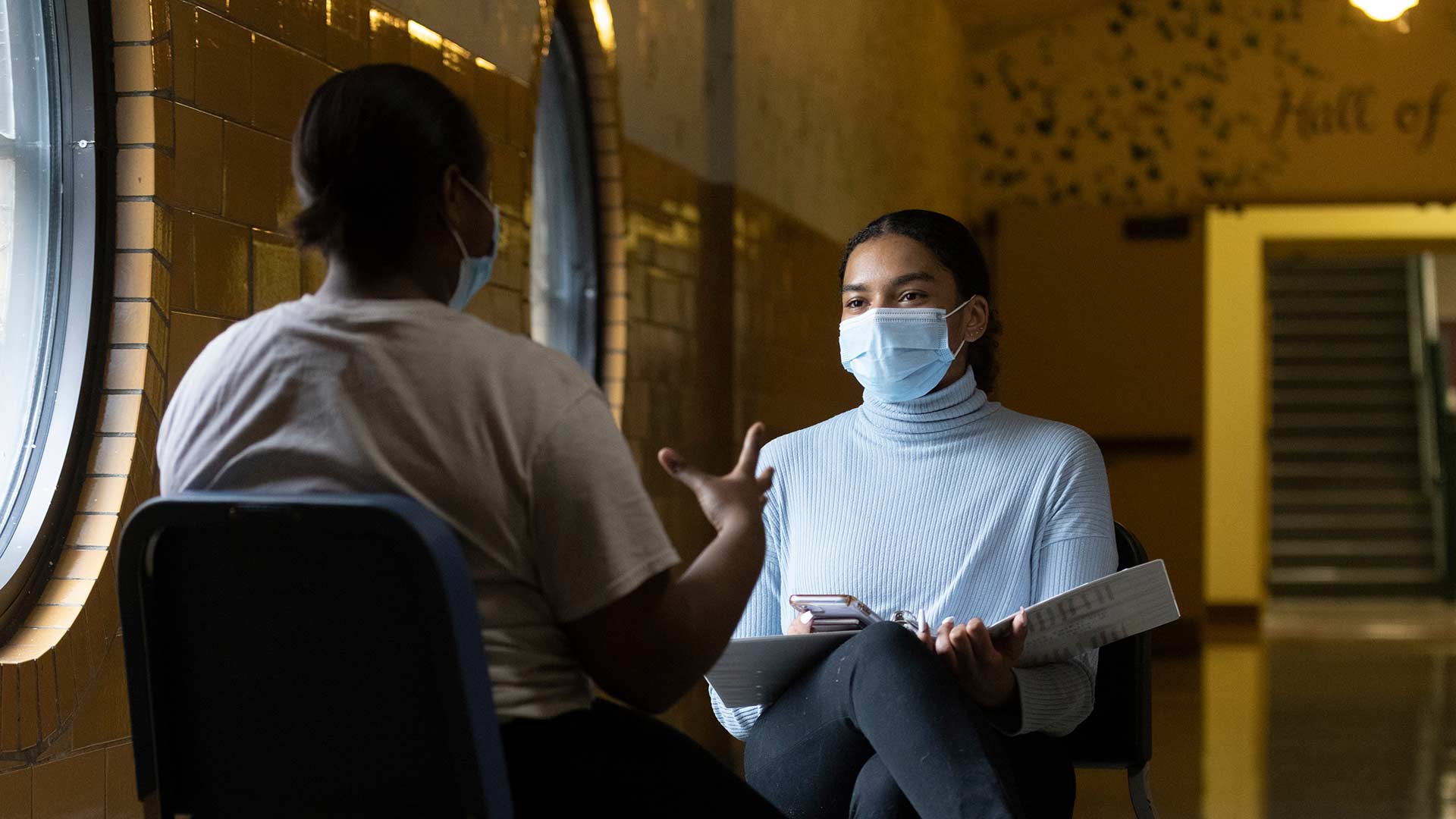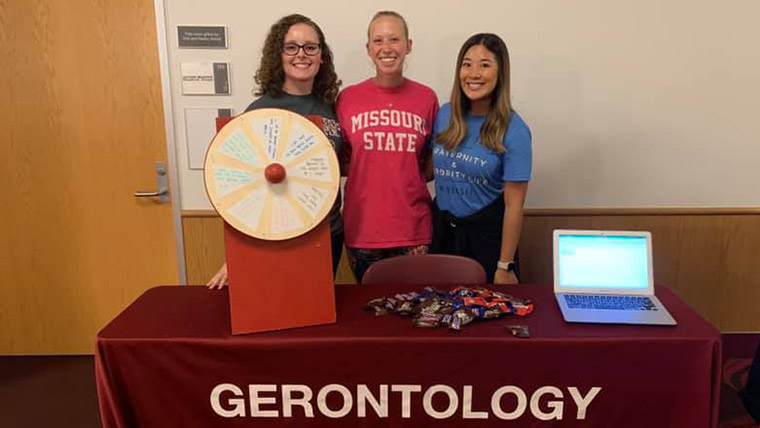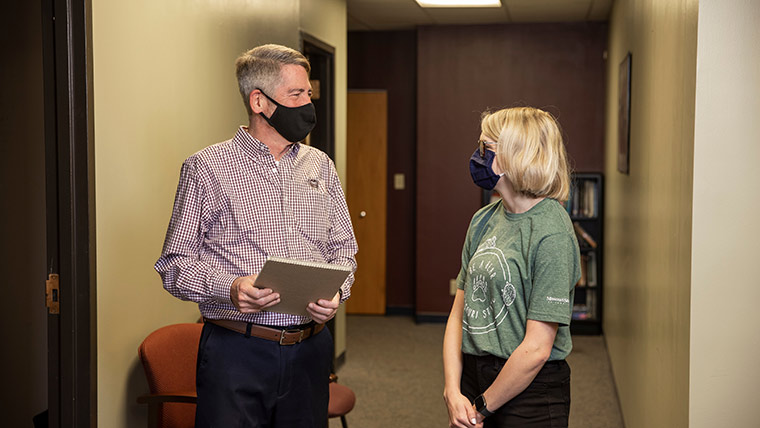Program options
What do you want to do? Choose the option area that suits your needs.
If you want to become a clinical psychologist, check out the Doctor of Psychology (PsyD) program.
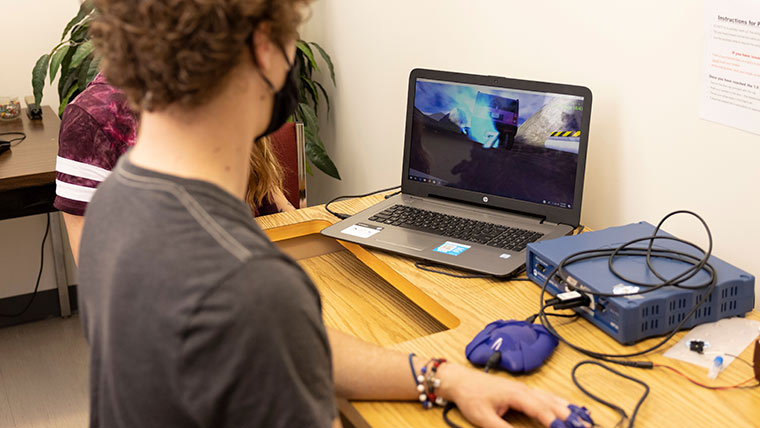
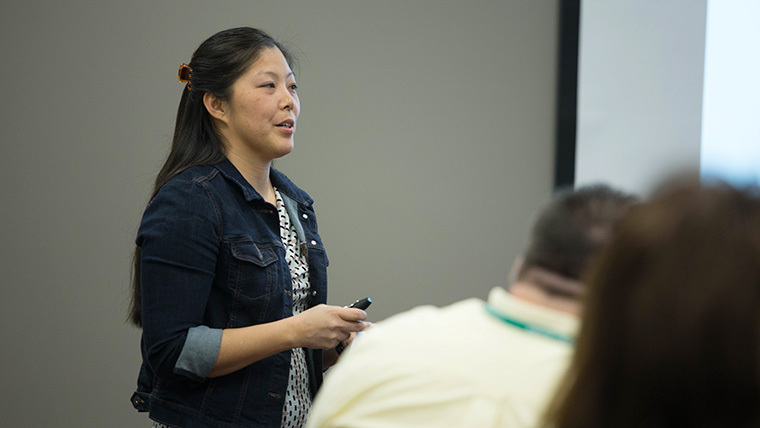
Why earn a master’s degree in psychology at Missouri State?

Have a degree that suits you
You won’t just have a general master’s degree in psychology. Our program has option areas (experimental or I-O) that give you specific knowledge and skills.
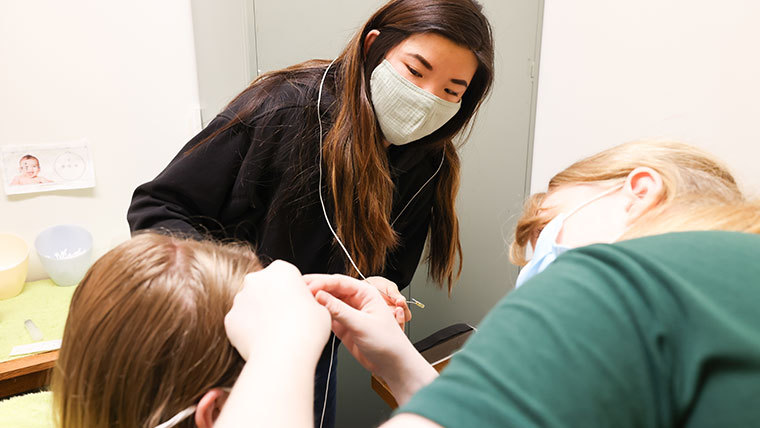
Find connections and conduct research
Small class sizes help you build relationships with your peers and faculty. You can work together on meaningful research.

Take flexible classes
Each option has elective courses you can choose from, giving you a more focused degree. Many classes are available online or in seated/hybrid formats.
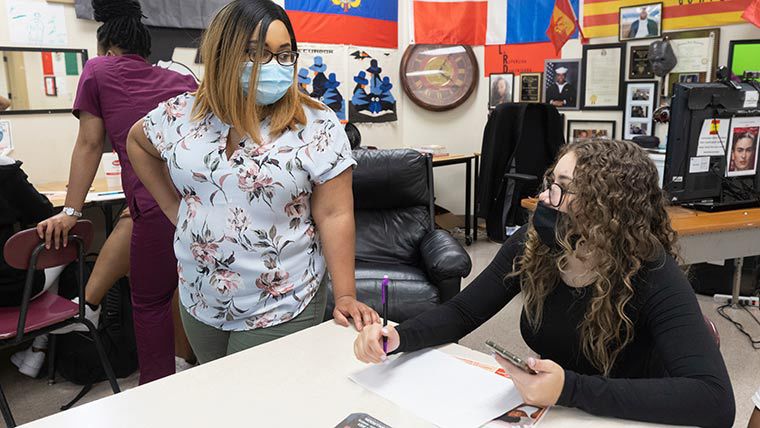
Learn from faculty with diverse interests
Your faculty have an array of experiences and research knowledge. Their specialties – such as behavior analysis, I/O psychology, sports psychology and much more – can give you new insights.
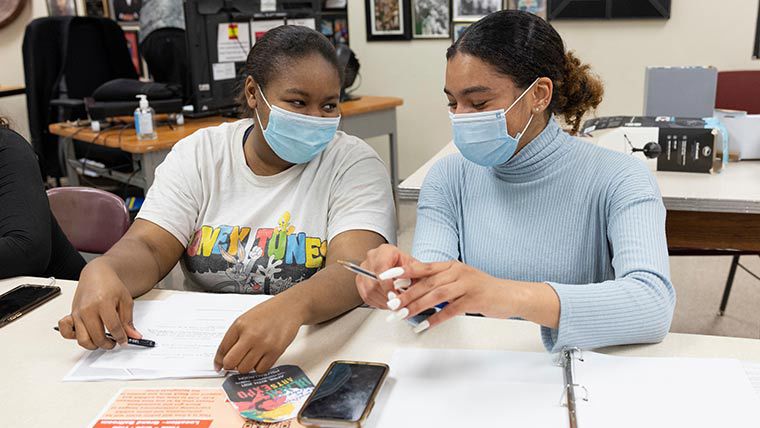
Counsel people, research and teach, or improve a workforce.
Need some help with statistics or research-related course work? Our help desk can give you guidance and insight.
